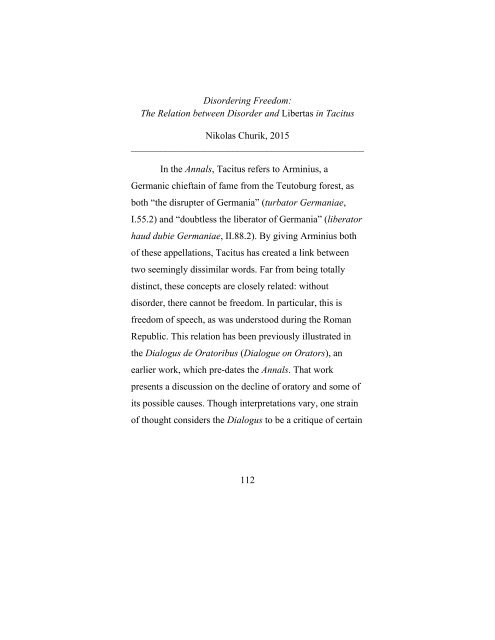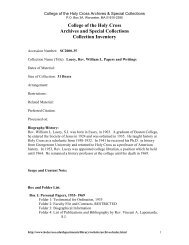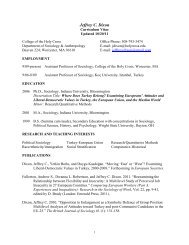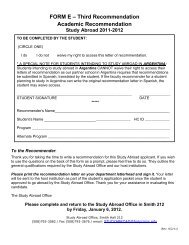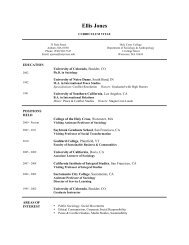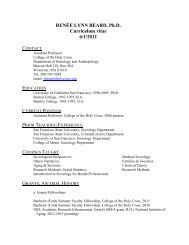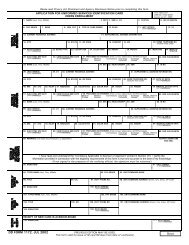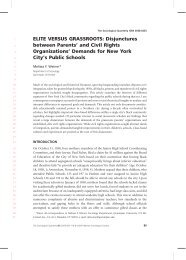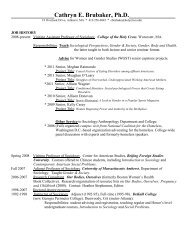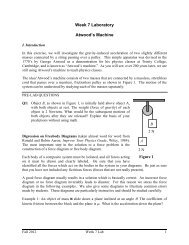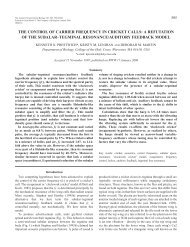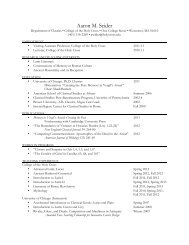Here - Academics - College of the Holy Cross
Here - Academics - College of the Holy Cross
Here - Academics - College of the Holy Cross
You also want an ePaper? Increase the reach of your titles
YUMPU automatically turns print PDFs into web optimized ePapers that Google loves.
Disordering Freedom:<br />
The Relation between Disorder and Libertas in Tacitus<br />
Nikolas Churik, 2015<br />
________________________________________________<br />
In <strong>the</strong> Annals, Tacitus refers to Arminius, a<br />
Germanic chieftain <strong>of</strong> fame from <strong>the</strong> Teutoburg forest, as<br />
both “<strong>the</strong> disrupter <strong>of</strong> Germania” (turbator Germaniae,<br />
I.55.2) and “doubtless <strong>the</strong> liberator <strong>of</strong> Germania” (liberator<br />
haud dubie Germaniae, II.88.2). By giving Arminius both<br />
<strong>of</strong> <strong>the</strong>se appellations, Tacitus has created a link between<br />
two seemingly dissimilar words. Far from being totally<br />
distinct, <strong>the</strong>se concepts are closely related: without<br />
disorder, <strong>the</strong>re cannot be freedom. In particular, this is<br />
freedom <strong>of</strong> speech, as was understood during <strong>the</strong> Roman<br />
Republic. This relation has been previously illustrated in<br />
<strong>the</strong> Dialogus de Oratoribus (Dialogue on Orators), an<br />
earlier work, which pre-dates <strong>the</strong> Annals. That work<br />
presents a discussion on <strong>the</strong> decline <strong>of</strong> oratory and some <strong>of</strong><br />
its possible causes. Though interpretations vary, one strain<br />
<strong>of</strong> thought considers <strong>the</strong> Dialogus to be a critique <strong>of</strong> certain<br />
112


